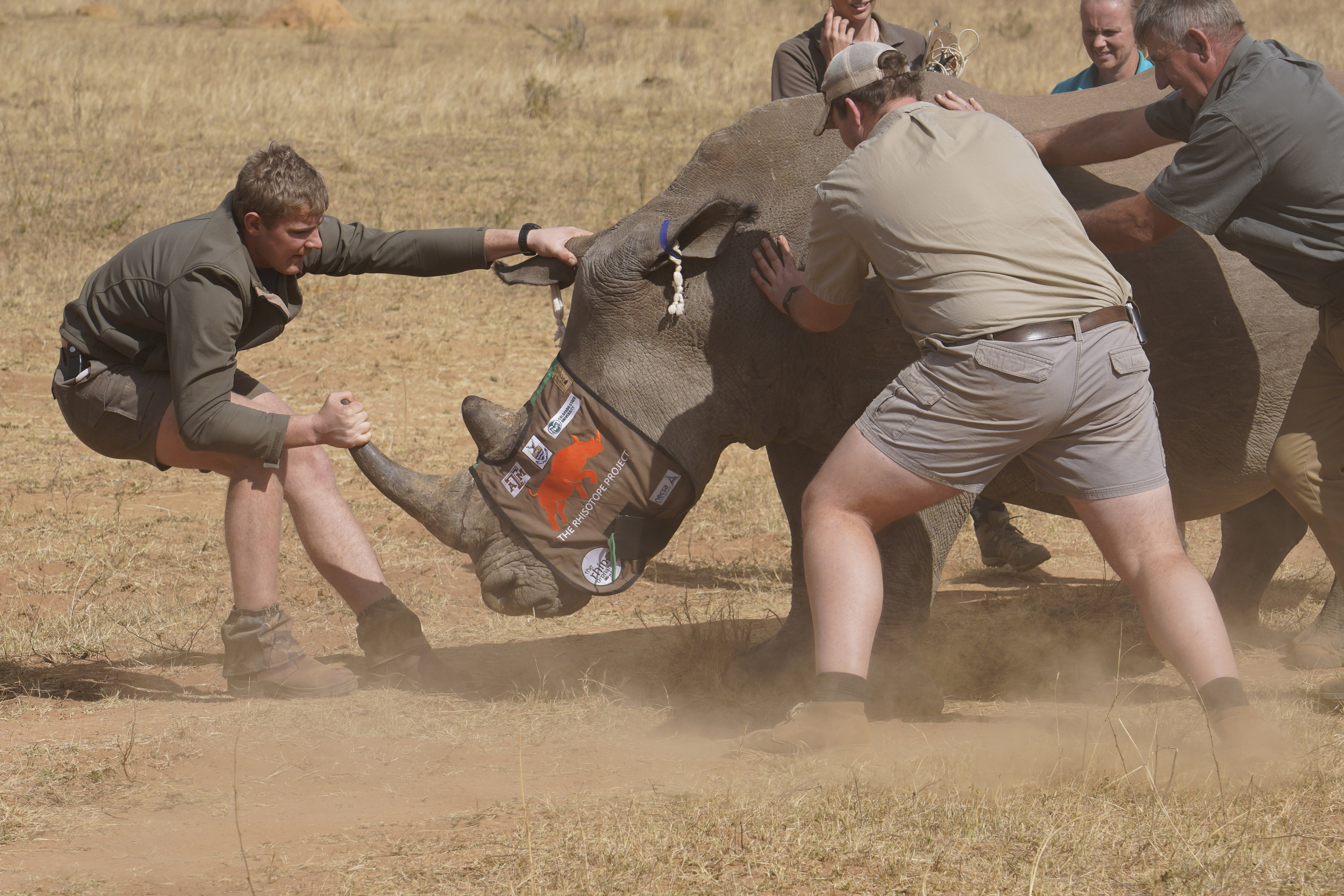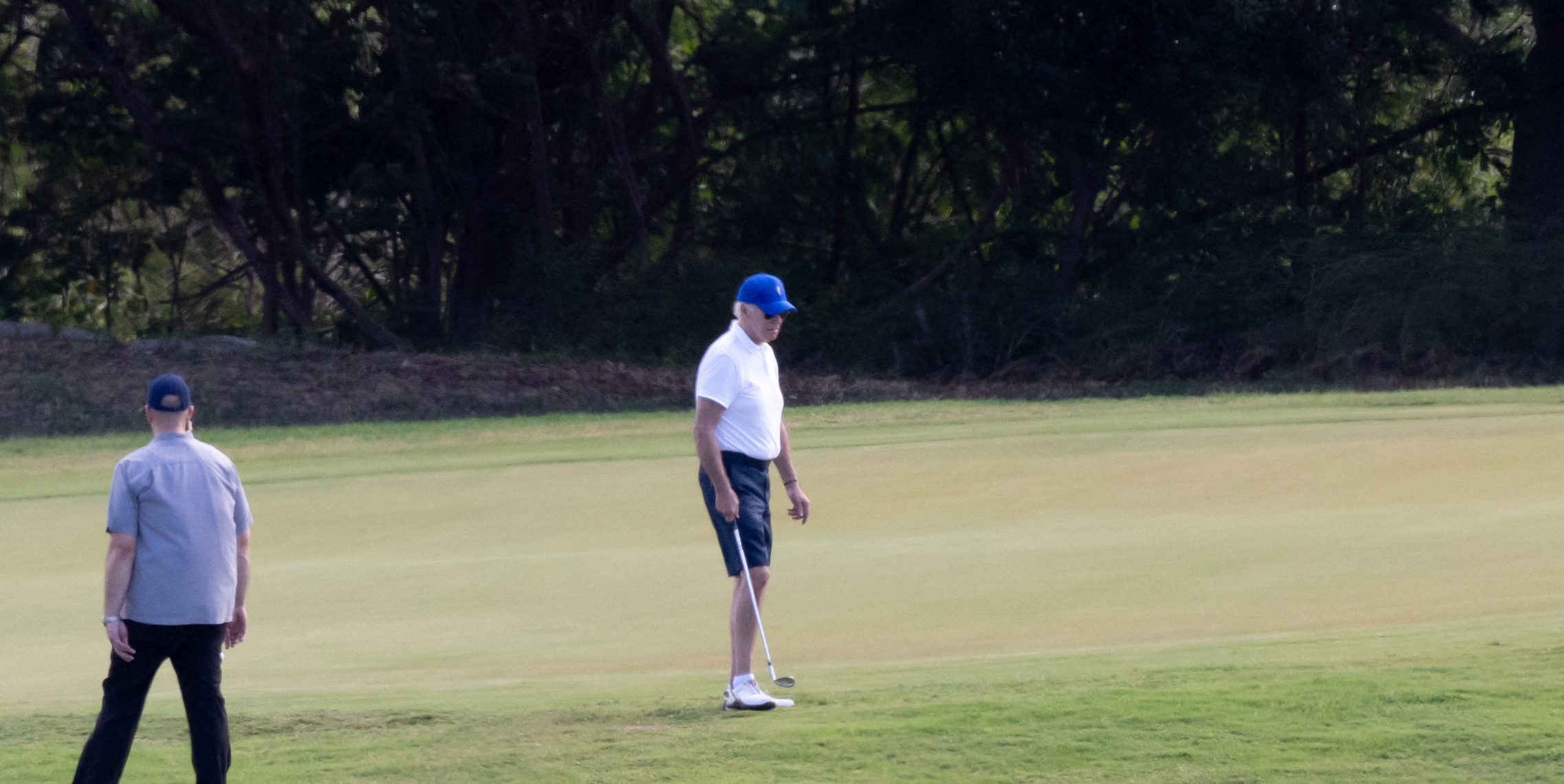There’s no doubt that this bird — with its seemingly endless neck, perched on its stilt-like legs one at a time, that eats upside down, filters food through its nose and will only mate under a very specific circumstance — is a showstopper.
“Anytime there's one spotted in a public place, we literally have people flying from all over the country just to come get a glimpse of one — even if it's through binoculars,” Dr. Frank Ridgley, the head of the conservation and research department at Zoo Miami, told NBC6.
And it's pink. So what more could you want from one of the quirkiest birds in the Sunshine State?
Um, maybe for it to actually stay.
Though American flamingos are native to South Florida, they have not nested or existed in significant, wild populations here for more than a century.
But in 2023, birds likely from the Caribbean and Yucatán, where they are also native, rode the winds of Hurricane Idalia to land back in South Florida.
Get Tri-state area news and weather forecasts to your inbox. Sign up for NBC New York newsletters.
As many as 101 birds were counted in the state during a February 2024 census organized by Audobon Florida, a nonprofit dedicated to the conservation of state birds and their habitats.
U.S. & World
Now, experts want the flamingos, recently spotted in the marshy parts of South Florida they inhabited abundantly 100 years ago, to stay for good.
How did they get here?
"Well, the flamingos have always been here — that's part of the story," Ridgley said. "For many years, they were considered like escapees, or they were even classified as non-natives for a while. But flamingos have been here a long time."
The bird was almost entirely wiped out in South Florida due to the 19th century plume trade — “when an ounce of feathers was worth more than gold,” according to Audubon Florida — and the destruction of their habitat in the Everglades.
"Hurricane Idalia basically sent a whole bunch of them off course," Ron Magill, the communications director of Zoo Miami and South Florida's own Steve Irwin, said.
Some flamingos kind of whoopsied their way to Georgia, Alabama and even as far north as Wisconsin, Magill said.
"Now those birds that flew way up north, after a couple of weeks they said, 'Nah, we don't belong here,' and their GPS kind of sends them back south. But the ones in Florida have been staying here," he explained.
According to the survey, the largest flamboyance — the actual term for a group of flamingos — was spotted in the Florida Bay, which the National Park Service describes as "a large (approximately 2,200-square-kilometer), shallow lagoon" between the Florida peninsula and Florida Keys.
Fifty birds were counted there, followed by 18 in the Pine Island area and 14 in the Merritt Island National Wildlife Refuge.
Why have they stuck around?
Well, why not?
Just kidding. A lot of work has gone into nurturing an environment that could host these animals once again.
"We have several places that are national parks and preserves, or waterways that have undergone extensive restoration, and certainly Everglades restoration efforts. We want to probably credit that," Ridgley said. "And that gets the result of all this freshwater flow that's coming back to the South that everyone's been working on for so long... the flamingo is likely a success story of that."
But whether or not the birds truly get comfortable in South Florida is still to be seen.
"Our hope is that there's been enough of environmental restoration, that the water levels are at the right level, that they're basically saying, hey, there's no reason to leave," Magill said. "You know, these are opportunistic feeders. If they have an opportunity to thrive here, there's no reason for them to fly."
What about the ones at Hialeah Park Casino?
Those birds are also American flamingos, but they're said to have been originally imported from Cuba long ago.
They are not birds brought in by Hurricane Idalia, Ridgely said.
Why does it matter if the flamingos stay?
Ridgley said the answer is threefold: environmental, cultural and economic.
On a scientific level, large nesting colonies of birds "absolutely" change their habitat, "and other species will learn to either coexist or exploit those," Ridgley said.
If the flamingo is a wading bird native to Florida, it probably helped the nutrient cycling process by consuming small invertebrates and crustaceans.
Then, there's the fact that flamingos are a cultural icon. Their funny physiques are all over maps and tourism promotions of Florida, and many think it's the state bird. (It's not, it's the mockingbird, but that's another conversation.)
They're a charming creature, despite their "obnoxious" sound that Magill imitates to great effect and terrible smell. (Remember, they eat crustaceans all day.) And they bring an interesting touch to Florida's fauna.
"Generally speaking, they're monogamous birds [that] build a nest out of mud ... it looks like a little volcano. And they only lay one egg," he said.
And interestingly, "they usually won't breed unless at least 30 other flamingos are looking at them," Magill said.
Zoos with populations too small to encourage breeding turn to, you guessed it, mirrors.
"They're the ultimate kind of voyeur," Magill said. "The mirrors stimulates them to breed ... So see all those people who think the mirrors are kinky, they're not that kinky."
We'll give you a second to pick your jaw up off the floor.
"And then, for people who maybe don't care about the environment or don't care what the state bird is, I think they're an important economic driver," Ridgley said. "Anywhere where there is responsible ecotourism in parts of the Caribbean or even in other parts of the world where flamingos are found--people love flamingos."
You heard it here first. Now tell the world: if I behave, I may be able to see baby flamingos return to the Sunshine State.
Until then, experts urge you to please keep your distance and not bother them. Or you’ll be to blame for ruining the triumphant return of the future state bird.



